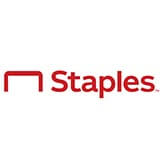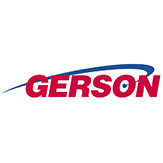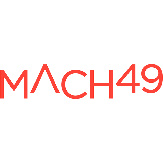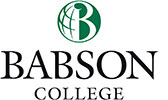For spoken communications, visit the Interpreting Services page.
Translation & Localization Services
Communication is key – Whether you are a global brand or local business looking to connect with more of the people around you, we guarantee that with localized, accurate translations you will attract more customers and reach your goals.

Clear Communication
Global Growth
Regulatory Compliance
Clear Communications with High-Quality Translation and Localization Services
In today's interconnected world, expanding your company's reach across borders is essential for growth. Which means effective communication isn't just about words – it's about culture, nuance, and emotional connection.
To truly resonate with your target audience, partner with Rapport International for translation services that accurately preserve your original intent and context, while seamlessly localizing your content with the cultural relevance and sensitivity your customers deserve.
Investing in high-quality translation and localization services bridges language and cultural divides while building customer trust, brand loyalty, and unwavering market credibility. Our translators deliver with precision, cultural authenticity, and technical excellence guaranteed to position you for success.
Translation & Localization Services in 200+ Languages
Expand your company’s reach with confidence when your website content, marketing materials, handbooks, product specs, legal documents, forms, and more, look and feel like they were written by professionals with an understanding of your target market.

Document & Forms Translations
Make it easier for people to do business with you by providing information and forms in their native language.

Marketing Translations
Convey a consistent marketing message that speaks to your customers in their preferred language.

Website Translation, Lead Generation, & Customer Acquisition

Scientific & Technical Translation

Multimedia Translations
Harness the power of audio/visual connections with an international audience.

Foreign Language Desktop Publishing (DTP)
Formatting and layout of your translated documents and websites so that they look as good as the original.
Some Helpful Tools to Get You Started:
Successful Translation Management Starts with a Plan
Before embarking on a translation project, take the time to develop a Translation Management Plan (TMP), a tool essential to your project’s success.
A TMP is a document outlining the goals, strategies, and processes for translating content into multiple languages; it is designed to improve the efficiency, impact, and value of translation projects, leading to greater success for your business.
Learn key points about creating a TMP and aligning your strategy and communication goals for global growth.
How Much Does Translation Cost?
Translation costs are dependent upon several factors, including the type of service needed, the language pair, the turnaround time, and the level of expertise required. You also need to look at the VALUE of the service being provided – look for an LSP that offers linguistic matchmaking, guarantees quality, provides cost-saving suggestions, and insists on transparency.
Become an educated consumer by downloading the guide today, to learn more about comparing translation quotes, determining the value of “extra” services, and measuring the return on your investment.
Our Translation & Localization Clients















Grow your business and build loyalty.
The modern marketplace is increasingly diverse and interconnected. Embracing the native language of your audience is a pivotal strategy to not only capture their attention but also nurture lasting relationships. Translating information bridges language and cultural gaps and shows your commitment to customer relationships that endure.
Consistent translations with our unique matchmaking process.
Working with a translator is much like working with a writer. Over time you build rapport, as the translator becomes more familiar with your business and its voice. Our proprietary process of Linguistic Matchmaking pairs you with the translator who can best meet your needs, fostering the relationship over time for consistent, high-quality translations across all of your content and departments.
Connect to customers with clear communication.
It’s more than a translation – it’s proof that you’re committed to your customers. Our proven translation process is the multilingual communications strategy your company needs, so you can connect with a global audience, no matter the language.
What Our Clients Say About Us


Very responsive and accommodating to my changing translation needs. They worked with existing translations to save us money. The work was done quickly and efficiently.
I highly recommend!
- Benefits Specialist, Babson College

Thanks again for the timely work on the Korean translations for the PowerPoint presentations. I was impressed with the rapid turnaround, and you were definitely very quick to respond to my queries.
I enjoy working with you.
- Director of Manufacturing, Warwick Mills

Using Rapport International has been an amazing experience, I would give it a 10 out of 10. Every time we end up get a new project from one of our clients, we never even think about another company to use for translation services. Rapport International is always on top of it, always willing to answer questions, to give us price quotes, and it has just been a fantastic experience to work with Rapport International.
- Project Coordinator, Leland Creative Marketing

I give Rapport International 5 stars, thank you for your great service.
- Owner, Mallard Printing

I used Rapport International for some difficult translations in several languages. Their work is top-notch, fairly priced, and always timely.
If you are looking for a good and customer-oriented translation service provider, Rapport International is your first choice!
- Director of Marketing, Harbor Health

Our Proven Process

Cost & Turnaround
Contact Us
Learn more about Rapport International and the services we offer




